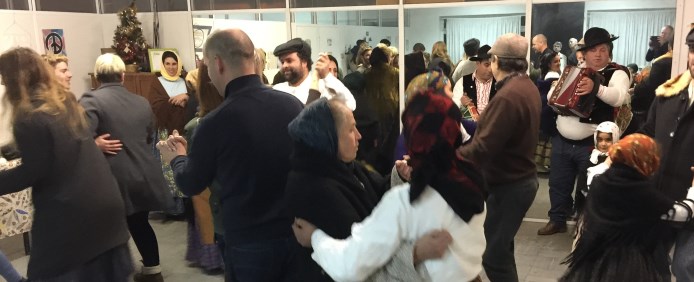
Giving hard-to-reach rural young people a platform to become engaged and involved in democratic life
IVOLO, an international voluntary youth organisation, aims to address the issue of youth disengagement in politics and traditional forms of civic participation. By helping young people, especially those facing some form of disadvantage, to build cultural links through opportunities in non-formal education, such as youth exchanges and conferences, they hope to address this problem.
Director Katie Jonas explains: "Although their lack of engagement didn’t necessarily mean the young people were disinterested, it seemed that, in some cases, policy-makers were making this assumption."
Encourage dialogue
According to Katie, the problem is even more pronounced with young people from rural communities and Ivolo was keen to develop a strategy to connect this hard-to-reach group with local politicians and power brokers.
After examining the options the organisation found that the answer lay in an Erasmus+ Youth Structured Dialogue project. Working with youth organisations from the UK, Lithuania, Latvia, Portugal and Bulgaria, they successfully applied for a €39,000 Erasmus+ grant to help fund their initiative, entitled Participation Goes Rural, which centred on a Transnational Youth Conference.
"Through the conference we hoped to encourage dialogue between young people and policy-makers, focusing in particular on the challenges faced by young people living in predominantly rural areas," says Katie. "We all felt that this group was even more disengaged from the traditional forms of political and civic participation than their city contemporaries."
Inclusion and empowerment
The conference, in Portugal, brought together 72 representatives from all participating countries as well as those with responsibility for youth inclusion and empowerment.
"The programme was based on non-formal learning workshops and presentations, some given by young people to experts, youth policy-makers and representatives of the main bodies responsible for shaping youth policies," explains Katie. "Other sessions and theoretical inputs were devoted to workshops facilitated by experts and policy-makers about youth empowerment and civic engagement. The learning activities were complemented with communication and social games.

International friendships
"The conference was a platform for young people to debate and engage with policy-makers and politicians and it allowed their voices to be heard. Participants improved their debating skills and learnt how to handle themselves in situations of disagreement. It gave the young people an enhanced knowledge on all the key aspects of democratic youth participation and was the springboard for them to be at the forefront of decision-making processes in their local communities. We hope that this, in turn, will make them feel more closely connected to these communities."
An additional benefit for participants, adds Katie, was how the event helped in their personal development - giving them an increased sense of self-worth and self-confidence.
Katie hopes that the lessons and outcomes from the conference will help to further develop fresh approaches to give young people a voice and help them to engage with their communities. She also believes that it will improve youth policy-makers’ understanding of young people’s opinions and needs in the field of civic and political participation.
Erin, a participant from the UK, commented: "The project was even better than I’d expected. At first I thought I would be able to express some thoughts of mine and just move aside letting others do all the work. No way! I did all the job of getting my thoughts through to the policy makers myself. Thanks for believing in me and letting me know how to do it."
I did all the job of getting my thoughts through to the policy makers myself. Thanks for believing in me and letting me know how to do it.
Katie also points out that the conference provided many young people who would not otherwise have had it with the opportunity to benefit from an international experience.
"It enabled them to forge international friendships and experience the culture and history of their host country, in a very different way to the tourists who normally visit this part of the world," she says. "They met with the Mayor of Santo Tirso and other politicians and decision makers based at the Town Hall. They joined in with traditional Portuguese dances and tried traditional local food - for many it was the first time they had tried eating octopus or picked oranges to eat directly from the tree!"
All the participants will now work towards accreditation with a Youthpass certificate and Ivolo hopes to follow up this project with a multilateral youth exchange or training courses, enabling participants to further share skills and knowledge and keep this issue on the agenda.
Katie concludes: “The topic of democratic youth participation is on the present and future agenda of all the participating organisations, so we will continue to carry out joint work in the field of stimulating democratic participation of rural youth, reinforcing our capacities in these areas.
"We are all very motivated to encourage even more young people to take active part in the democratic life of their local communities - particularly young people living in remote rural areas. The experience gained at this transnational youth conference will help us to create new successful projects that will continue to benefit local communities.”
Are you interested in applying for a similar activity? Read more about Youth Key Action 3 and get inspired to develop your own project.
